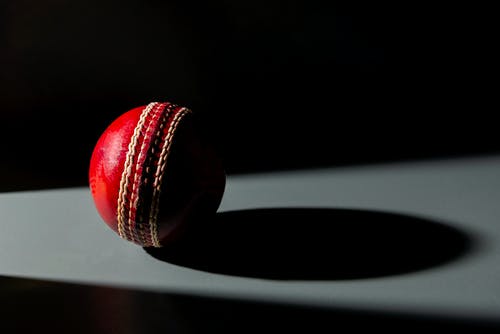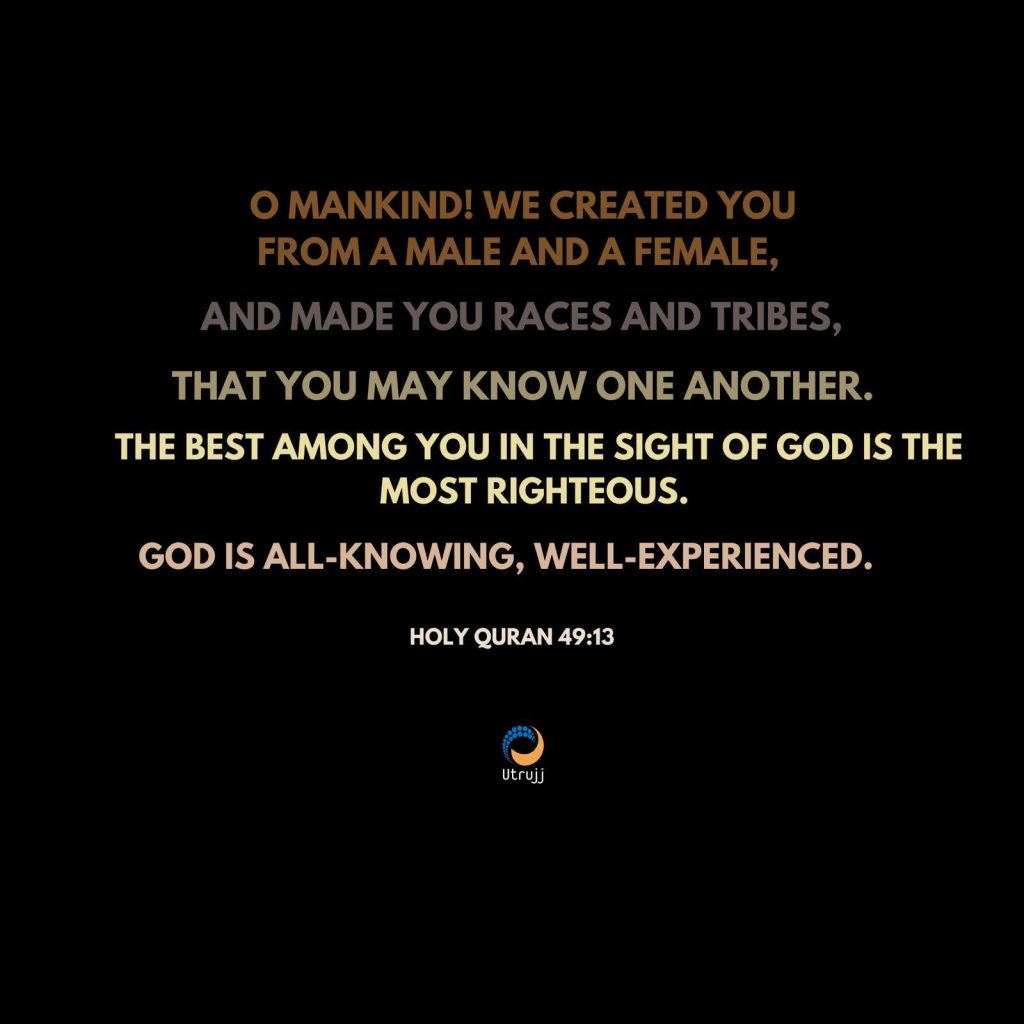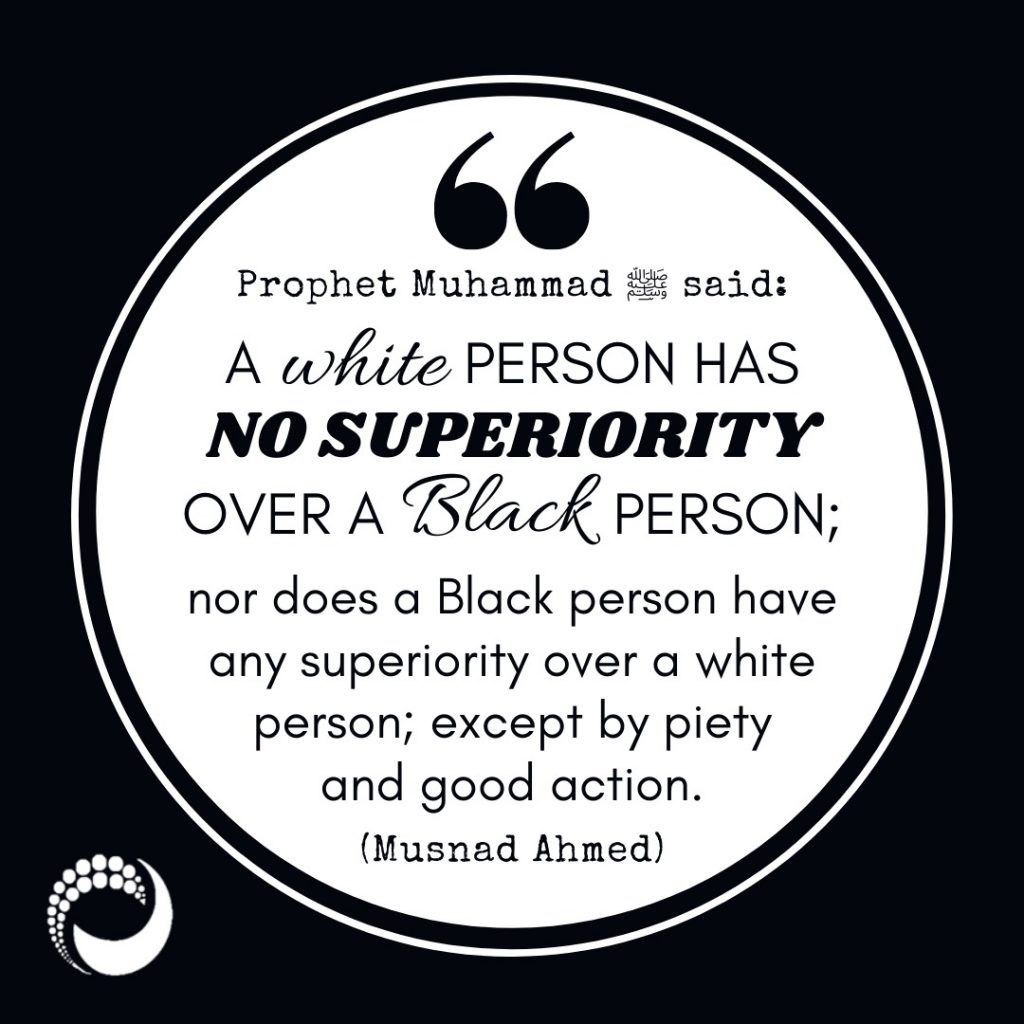Racism and Islamphobia – the tip of an ugly iceberg

Racism and Islamphobia are not acceptable today. There were not acceptable yesterday and will not be acceptable tomorrow.
Nike has joined Tetley, Yorkshire Tea and other sponsors in dropping Yorkshire Cricket Club which plays at one of England’s most historic and prestigious grounds (Headingley), following the allegations by Azeem Rafiq of being institutionally racist and having ‘a culture that refuses to accept change or challenge’.
As more snippets of the investigation are leaked and the story emerges of Rafiq feeling close to suicide, we see glimpses of the painful, ongoing systemic racism which was allowed to fester. Whenever it was raised, it was continually denied and brushed under the carpet. The carpet has been peeled back and what is coming to light is being called “one of the most repellent and disturbing episodes in modern cricket history”.
To say this is disappointing is an understatement, just a year after the exposure of the racial abuse suffered by Black England footballers after the defeat of England in Euro 2020. And two years since the tragic death of George Floyd, which brought the issue of racism to the world’s attention.
It is particularly unpleasant as the core of British Values as defined by the government is championing the rule of law, individual liberty and mutual respect and tolerance.
This damning episode has exposed the fact that it is not a single case, but the tip of a deeper unjust and oppressive power structure that has been allowed to exist for too long and which needs to be addressed and rooted out. As Rafiq said, it is “not about individuals”, but rather “institutional racism and abject failures” by leaders at Yorkshire and in the wider game.
Mihir Bose who is due to publish his book ‘The Impossible Dream: Can We Ever Have a Non-Racial Sports World?’ reported that ‘the racism Azeem Rafiq suffered while playing for Yorkshire goes beyond the county to the very heart of the English game. It reflects the fact that, in stark contrast to football, cricket has for decades drawn a veil over racism and become less diverse, not more so.’
While it may seem blindingly obvious that calling someone the P-word or ‘Rafa the kafir’ is not ‘acceptable dressing-room banter’, the president of Lightcliffe cricket club, John Brooke belittled the allegations by saying, ‘People can be abused inappropriately because they are fat, or bald. I’ve played in dressing rooms where there’s bullying but it may be to do with people’s characteristics.’
To equate racism with banter and humour, and to park it in the same category as mocking someone’s size, shows a refusal to accept the cruel impact of generations of racism. The point is not just about Azeem’s experience and the scars he has been left with, but also why in a county which has been home to migrants from the Indian subcontinent and West Indies for over fifty years do such few players from ethnic minorities ever make it to the team?
Sadly this case reminds us that racial and religious prejudices and hostility continue to affect Muslims and people of ethnic backgrounds in the UK.
Most racist incidents do not happen in isolation, they happen over a period of time and are a culmination of deep-seated prejudices, animosity and polarity.
It is our moral duty to call things out and not be passive. As Asif Sadiq MBE said after Euro 2020: ‘Remember when you asked what’s the difference between not being racist and being anti racist? Well it’s times like this when you can either take a clear stance and challenge racism when you see it or sit back and say nothing. There is no place for racism in football, in society in the workplace or in this country. But we must all unite and fight it, wherever we see it.’
The definition of Islamophobia
Islamophobia is not just hate crime and abuse, but the hidden barriers that Muslims such as being discriminated, failure to be promoted based on achievement, marginalisation as well as demonisation based on negative stereotypes.
It ranges from being called terrorist and taunted to ‘go back your country’ in the playground, being referred to as P*** under the guise of ‘banter’ and being portrayed negatively by media and discriminated against in public policies.
Yet right-wing writers, such as Melanie Philips prefer to deny the existence of Islamophobia, claiming it is a fiction. She said ‘there was no equivalence between antisemitism and Islamophobia. The former was a deranged demonisation of a people; the latter was used to shut down debate.’
In fact data on hate crimes against Muslims from the Metropolitan Police and Tell MAMA among others render such views wholly mistaken. Statistics from Islamophobia Awareness Month tell the story:
21
Studies have demonstrated that there are 21 negative references to Muslims within British media output for every single neutral or positive reference.
8000
Racially motivated hate crimes took place in 2017/18.
1,665
The Metropolitan Police Service recorded 1,665 Islamophobic offences in 2017/18.
50%
50% of women wearing the hijab feel that they have missed out on progression opportunities because of religious discrimination and that the wearing of the hijab had been a factor.
143,920
Tweets considered to be derogatory and anti-Islamic were sent from the UK between 2016-2017. This amounts to 393 a day.
300
Childline held nearly 300 counselling sessions across the UK following the Manchester Arena attack in May. The NSPCC has reported an increase in helpline calls relating to racial and religious bullying or hate crimes in Manchester and London.
How Islamophobia affects Muslims
Islamophobia affects children’s experience of growing up and feeling alienated and their future prospects as they are marginalised socially and in the workplace.
CVs with Muslim names being three times more likely to get rejected compared to English-sounding names despite having identical skills and experiences
Inaccurate, discriminatory and insulting headlines targeting Muslim communities are published on a regular basis with no adequate sanction against or deterrent for newspapers.
Mosques and Muslim community centres experience hate crimes and are regularly vandalised, set on fire and targeted with bomb threats.
Civil liberties are curtailed as policies constantly frame Muslims under light of the “counter-terrorism” narrative.
Asians are 11 times more likely to be stopped at airports compared to their white counterparts.
What is the root of racism and Islamophobia
Racism and Islamophobia are the manifestation of a fundamental lack of respect, honour and dignity by one set of people towards another. Yet Allah Almighty told us that every single life deserves to be honoured He Himself honoured mankind – not just one race of mankind. He stated clearly:
And surely We have honoured the children of Adam, (17:70)
Honour has been granted to all humans
Being respected and honoured is a right not a privilege that one group can take away, or which one race or country deserves more than another. Allah Almighty honoured every single one of the children of Adam.
Every human being has this God-given right to be respected and treated equally regardless if you agree or disagree with them.
Depriving anyone of respect is unacceptable
To come into the 21st century and commit this crime of racism, goes against human dignity, human rights and respect- it is unacceptable. From a judicial point of view it is illegal, from a shariah point of view it is haram. From the point of view of common sense, it is clearly wrong. Whichever way you look at it, it’s barbaric.
When you look back over the years, you see these are not one-off incidents. When you look at the record and the data, racism is systemic in many places.
No one has the right to be brutal against anyone because he is from a different race, or is a different colour, Muslim, non-Muslim, or for the way he dresses, or if he is bearded, or not, or if she wears hijab or not. We have no right to discriminate.

We need good leadership
We need a genuine leader, who can lead by example. Not a weak leader, who can not unite people, he’s after fame and more votes. To crush the rights of people is completely wrong.
When injustice is done, it should be rectified
Enough is enough. People have the right to show their concerns in a legitimate and peaceful way without of course, committing any illegal offences.
Allah Almighty has provided the instructions in the Quran on how to deal with each other, respect one another, support one another and dignify one another. However when this does not happen it leads to oppression.

Injustice breeds oppression
We see across the Quran, time and again, the appalling consequences of oppression. Oppression breeds more oppression. And oppression breeds extremism. If you want to counter extremism you need to bring justice and treat people fairly.
Oppression is rooted in (kibr) arrogance.
What is kibr? The Prophet (peace be on him) defined kibr as:
‘Pride is rejecting the truth and despising people.’ (Muslim)
There are plenty of verses in the Quran which refer to the punishment of those who are acting with arrogance:
Go now and enter the gate of Hell and stay there forever. (39:72)
[Hell] is the worst abode for pride, for arrogance. (39:60)
In several verses Allah Almighty has mentioned this punishment for people of pride (kibr) or arrogance. The first one who showed arrogance was Iblees (Satan) when Allah Almighty commanded him to prostrate to Adam, and salute him in this particular way. However, Iblees refused, saying:
‘I am better than him (Adam), You created me from fire, and him You created from clay.’ (7:12)
This was the first manifestation of kibr.
Anyone who looks down at others is following the footsteps of Shaytan, and will be with his group.
The Quran and Sunnah keeps warning us against kibr. The Prophet (peace be on him) mentioned:
The servant will not achieve the truth of his faith until he loves for people what he loves for himself. (Musnad Ahmed)
This is the opposite of kibr.
Despising others
Part of kibr is despising others i.e. having hatred in your heart towards others and looking down at them. Allah Almighty has forbidden this. He says in the hadith Qudsi which has been narrated in different books that Allah Almighty says:
‘Pride is My cloak, Majesty is My lower garment. Whoever is competing with Me on these two attributes, I throw him in Hell.’ (Muslim and Abu Dawud).
Commentators of this hadith noted that the cloak and lower garment – pride and majesty are two attributes of Allah Almighty. No-one has the right to compete with Allah Almighty in these two aspects. And He uses the example of the garment and cloak to help us understand.
Just as we don’t share clothes with anyone when we wear them, Allah Almighty does not share these attributes with anyone. He will throw anyone in Hell who is competing with Him for these two attributes (Kibriya‘ and Azamah). They are for Allah Almighty alone.
The antidote to kibr
As kibr is a disease of the heart, how do we get rid of it?
The Prophet (peace be on him) said:
‘Allah revealed to me, O servant of Allah: Be humble’. (Muslim).
Humility is the opposite of kibr. Loving for others what you love for yourself is the opposite of despising others.
The rise of hatred
Hatred towards others, and unfortunately, the message of hate is just getting louder and stronger these days. Some people look at others like third class citizens. This is pride (kibr). They discriminate against others because of their colour. This is kibr. The punishment is Jahannum. They discriminate against others because of their language, their deen, their race, their nationality, their poverty. This is kibr. What is the punishment? Allah Almighty made it clear: Jahannum.
The message of hate is not the solution.
Allah Almighty introduced the message of love since He sent Adam (peace be on him) till the last Messenger Muhammed (peace be on him).
‘You will not achieve the highest level of imaan, until you love for others what you love for yourself.’ (Ahmad).
It means until you get rid of hatred towards others you won’t be a true believer.
And when some companions demonstrated arrogance, because of the colour of his mother, the Prophet (peace be on him) was sad and said:
‘You are a person who has some traces of Jahiliyyah ignorance in you’. (Bukhari and Muslim).
We should spread the message of love, leading by example. It’s not just that we talk the talk, we walk the walk as well. No matter what you say, your actions prove you right or wrong.
The cure for kibr
Don’t despise others. Hatred breeds hatred. Oppression breeds extremism. To fight extremism and hatred you need fairness and justice, love and respect. You need to create new opportunities for people, new jobs for those who are jobless, you need to stop discriminating against them.
People of Goodness, Fairness and Justice
Allah Almighty is teaching us how to be people of goodness. People of fairness, people of Mercy. People of no discrimination. We expect in return humanity to follow the guidance of the revelation, at least the People of the Book who belong to the same Abrahamic faith.
The Prophet (peace be on him) was keen to teach us how to behave with each other. Not only within our community but with all humanity. Because Muhammed (peace be on him) is the Messenger for all mankind.
By being role models, promoting the message of fairness and justice and love and no discrimination, we are pushing towards this direction in our communities, in our countries. Hopefully we can make a difference.
Don’t be brutal. Kindness, mercy and love factor in every message Allah Almighty has sent to humanity. Islam teaches us to improve our character and conduct so we can deal with our reality.
I ask Allah Almighty to purify our hearts from any pride and kibr. And make ‘tawadu‘ (humility) and love amongst us all. And bring peace and order to our countries. Ameen
Shaykh Haytham Tamim and Ayesha Khan 2021
- Why should you follow up one good action with another one?
- Don’t be a Ramadani person – Be a Rabbani person.
- How do you pray Salat al-Kusuf – the prayer during a solar eclipse
- The test of will – Tarawih Reflections 30
- Why humans can’t be gods – Tarawih reflections 29

Recommended Posts

Don’t be a Ramadani person – Be a Rabbani person.
April 10, 2024

The test of will – Tarawih Reflections 30
April 09, 2024

